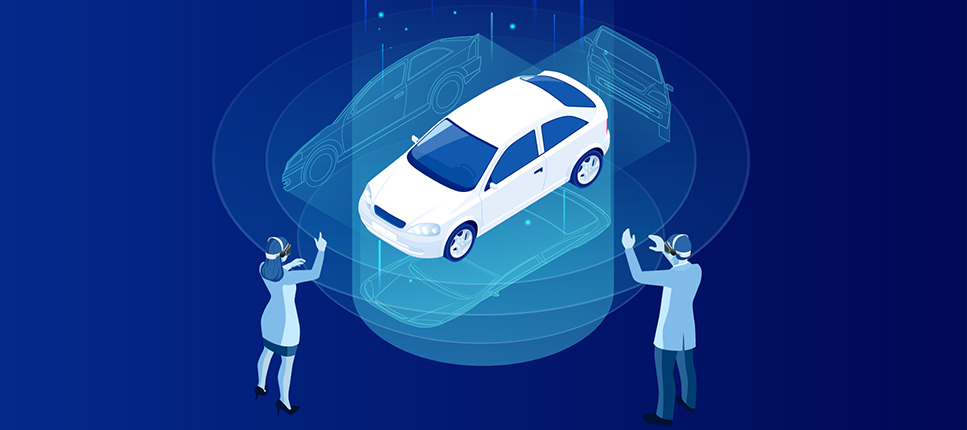Increasingly powerful, ergonomic and accessible, virtual reality (VR) is making its way into the world of learning. This modality, which invites the user into an immersive and interactive universe, can be adapted to reproduce the conditions of very diverse professional environments that are difficult to access or far away. Learners can thus practice complex tasks in complete safety until they are fully mastered. To give you a better idea of the potential of this fascinating technology for learning, here are 10 of its assets!

Virtual reality…
Has the advantage of:
- lending itself to both synchronous and asynchronous modes.
- promoting a sense of embodiment, empathy, flow, and engagement among learners (Shin, 2018).
Is best suited for work activities that:
- may be hazardous to self or others (handling chemicals, practicing surgery, etc.).
- are practiced in a place that is not easily accessible (nuclear power plant, remote natural site, etc.).
- requires empathy or the ability to react tactfully in situations where the emotional dimension is important (assisting people in difficult situations, crisis management, etc.).
Enables learners to:
- acquire skills and know-how in cases where theoretical knowledge is not enough.
- develop the right reflexes and learn to make the most judicious choices in risky situations.
- to practice without fear of making irreparable mistakes or being judged by others.
Enables educational institutions or employers to:
- offer empirically based training that is standardized.
- train a large number of professionals in complex environments that need to be replicated (home nursing, archaeology, automotive or aerospace production, etc.) in a simpler and more efficient manner.
Related articles:
- Virtual Reality 101
- Virtual and Augmented Reality: 8 uses within universities
- Meeting your learning objectives in XR
- Using Photogrammetry to Immortalize a Historical Landmark
- Virtual Reality in Learning as Seen by a Ubisoft Expert
- Discussing comfort and performance in virtual reality with a Ubisoft expert
- Is virtual reality accessible? We’re discussing it with a Ubisoft expert
Author:
Catherine Meilleur
Communication Strategist and Senior Editor @KnowledgeOne. Questioner of questions. Hyperflexible stubborn. Contemplative yogi
Catherine Meilleur has over 15 years of experience in research and writing. Having worked as a journalist and educational designer, she is interested in everything related to learning: from educational psychology to neuroscience, and the latest innovations that can serve learners, such as virtual and augmented reality. She is also passionate about issues related to the future of education at a time when a real revolution is taking place, propelled by digital technology and artificial intelligence.







Leave A Comment